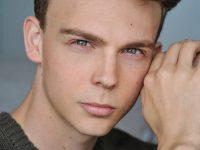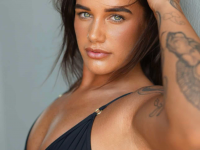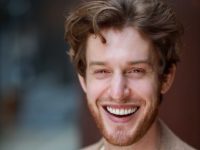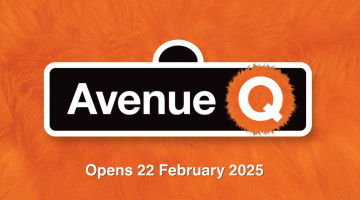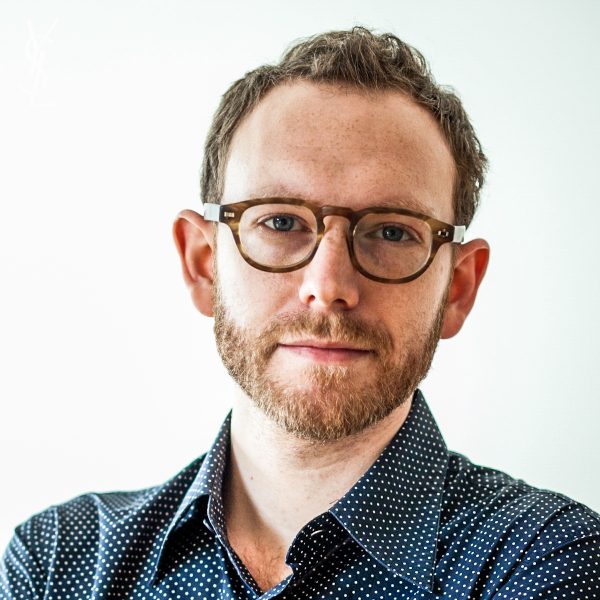
Interview with Jacob Krupnick
Unveiling Dance and Stories
Interview by Brendan Daynes
Jacob Krupnick is a seasoned Director and Producer with a deep passion for movement and storytelling. He has a knack for transforming captivating visual moments into compelling narratives and possesses an innate ability to capture the essence of dance through his lens, translating the language of movement into powerful stories that resonate with audiences across the globe.
Then Comes The Body is not just a documentary; it’s a journey that unveils the heart and soul of Leap of Dance Academy, an extraordinary ballet school in the outskirts of Lagos, Nigeria, a mega city of 15 million people. It’s gigantic, sprawling, quite poor and there is no presence of ballet. After discovering ballet via the Hollywood movie ‘Save the Last Dance’, Daniel Ajala taught himself everything about the artform via the internet. Through the lens of Jacob’s camera, the film weaves together a tapestry of determination, dreams, and dance that transcends cultural and geographical boundaries. 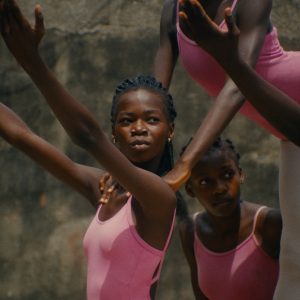
In a conversation with Brendan Daynes, Jacob delves into the creative process behind Then Comes The Body. Jacob’s unique approach to storytelling through movement shines a light on the students and their dedication to their craft, showcasing dance as a universal language that speaks to the core of human emotion.
Brendan: Tell us about your initial encounter with Leap of Dance Academy. What sparked your interest in this story, and how did you decide to turn it into a documentary?
Jacob: At the beginning of the pandemic, Daniel posted a video of some of his students rehearsing ballet, in the rain in the muddy yard, which captured the world’s attention and went viral pretty quickly. That’s when I discovered Leap of Dance Academy and I had a very immediate electric reaction. As someone who makes films with dancers, I’m always looking for stories that I find intriguing and this one was immediately that. I started following a couple of their dancers on Instagram and picking up on what’s happening in their lives as they are having this global viral experience. I kept having this growing curiosity about what is really happening in Lagos as these students have some new attention and new opportunities. I keep seeing the same locations in this dusty, sandy, muddy neighbourhood and wonder what exists behind the frame that I’m seeing again and again? This is a completely underdeveloped neighbourhood, in the city, where what’s really happening here is a story that they are not really in a place to fully tell themselves. I finally made contact with Daniel and started having regular conversations with him, describing the kinds of work that I make, how I like to work with people, and helped him understand that I wasn’t interested at all in doing some kind of puff piece or some commercial thing. I wanted them to really be in a position to tell part of their story that had not been told. Daniel introduced me to all of his students over zoom and I started speaking with a handful of them who I thought might be interesting to focus on if we came if and when we came to Lagos. It took about a year of being in regular contact to make a real breakthrough. I had a time to think about why this is so resonant for me. The most exciting element is that ballet is like this capsule of culture. It’s like a seed in the wind that comes from Europe that makes its way all around the world and gets turned into this fun movie in Hollywood and 20 years later, that winds up having informed the creation of the first classical ballet school in Lagos, Nigeria. Thinking about ballet as this kind of seed in the wind that’s moving across the world was super interesting to me. In some ways it’s not that crazy that there’s ballet in Nigeria because there are unlikely things all over the world. Part of what is also an added layer here is that ballet as a traditionally a gate kept pursuit, ballet performances, for example, have been gate kept by virtue of ticket prices. Imagining there being students with torn tutus and leggings, giving this their all and giving this all of their attention in a neighbourhood where there’s very clearly no future for this as a profession was inspiring to me. They know that and they’re aware of it, and they fight against and that was fascinating. There’s full self awareness about how much of a long shot it is but that’s the recipe for a totally inspiring story.
Brendan: Your passion for storytelling through movement is evident. How did you approach capturing the essence of “Then Comes The Body” and its students on camera?
Jacob: I’m not new to filming dance on camera, but I’m not a choreographer. I grew up incredibly shy and totally mortified about using my body for things as I was a fat kid who felt very self conscious about being the fat kid. Dance is sort of a middle to late in my life interest and discovery and now I’m the super enthusiastic dancer at a house party. So dance is a fascination and now a kind of professional language. But as I said I’m not a choreographer, and I’m not really interested in developing a real vocabulary for formal choreography. I’m interested in working with dancers who have a movement language of their own. Ballet is not the space for wild improvisation and originality in personal expression, especially if you’re a student. It’s about rehearsal, it’s about mastery and it’s about understanding things through a lot of practice. As an outsider who’s been making dance films for a long time, I like working with dancers whose stories are interesting to me and with whom I can build a relationship. My process is to basically talk with people about stories in their life, where they come from, what they’re interested in, what they want, what they’re nervous about and then find ways to create space for them to perform something that will bring that story to life. In Then Comes the Body you’re hearing the voice of our dancers speak about what their goals and ambitions are while you see them move. I went to Lagos with the hope of telling a story that was very collaborative with the people who are in it. I’m trying to understand what are they feeling, what are they going through, what they want to share. Then its about trying to find a place, a moment, a process, a performance or a situation that is not too literal and not too obvious or heavy handed that anyone can watch and really know what that person is going through. The audience needs to really hear their words and see their movement and really get it. So I’m kind of like a medium or a conduit in some ways.
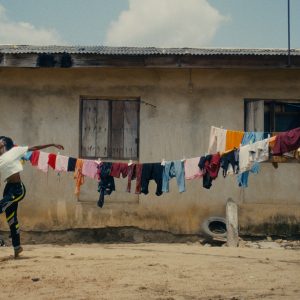
Brendan: The cultural context of Lagos brings its own set of challenges. Could you share some specific challenges you encountered during the filming process?
Jacob: Nothing but challenges. Being in Lagos was really hard from a production standpoint, but I had great local producers, one named Damilola Ellijay, who was just fantastic and made the experience fun, funny and moving. I’ve travelled a lot for my work to places that are radically different from my home in New York in every way. In some ways Lagos felt about as far from familiar and predictable as any place I’ve been. There are really basic challenges like the power is constantly going out. Ajangbadi, where the dance school is, had electricity roughly two days a week. I still had a great experience and take a lot of pleasure in working in situations that are unfamiliar and challenging. I like to think about it well in advance and then adapt and laugh about it. We had good fortune and worked through things that were interesting challenges. We also calibrated the project to acknowledge that there’s a lot that we’re not gonna be able to control and so stay as agile as we can. I love embracing chaotic public space and so we filmed in a market. These markets are in the centre of the city and are really striking. We had to hire security and get permission in a more formal way and work around massive crowds of people. In my work I’m always looking for a place that’s impossibly chaotic and I found it! I found the tangibly unmanageable, never ending throng of people who cannot be controlled and it was fun to film there. Nigeria is a place where there is not a lot of common agreement about how to behave. For example, there are two sides of the road on the highway and on both sides of the road, people are driving in both directions, and anything goes. This was unlike anywhere I’ve spent time in my life and although it can be bewildering because you’re you’re not clear on what rules are it was also exciting!
Brendan: Amid the challenges, there must have been heartwarming moments that left a lasting impact. Could you share one such memorable experience from the filming process?
Jacob: There’s a lot of competing highlights. I’ll give you one that’s actually very personal. When we were planning this project, we knew I knew there would be a lot out of our control. I knew the locations as well as I could but there was so much I didn’t know. There were a few images I had going to Nigeria where I thought, I really want to create this moment. Somehow, they were almost all based on images that I’ve seen from the dancers themselves share on Instagram. I would sort of tweak these ideas, if we can do it in a way that’s more like this, or if it can be more cinematic, or if we can film it in just this certain way and that became a kind of visual guidebook for things to to work toward. On Google I came across a handful of bus parks where you see tonnes of classic yellow buses and I wondered if these were common? They are everywhere. They’re the fixture for how Nigerians get around. There is a massive network of yellow buses. I found a Google Streetview image of a bus park and wondered if it was possible to get on top of a building and then shoot down and see a bunch of these buses. Precious Duru (one of the students) was preparing to leave for Belgium a couple months after we were there and I really wanted to tell a story about her leaving. I knew that we couldn’t do that in some cheesy way, I didn’t want to see her pack her suitcase but I wanted to say something about the process of leaving home. I think it’s one of the more extraordinary parts of the film, she performed a beautiful improvisational piece for about 45 seconds on top of one of these buses. We filmed from an overpass from very far away and we just slowly pull out and gauge the massive scale, this never ending scene of buses and gather what the entire city feels like. It’s not a place that she spends time in and it’s not near her home but it is at the very centre of the city. She was excited to do it and was excited to be asked to do something kind of daring. I’m sharing this whole story because it is an example of an image that I had in my imagination that we were able to create that fully serves the story, while also feeling like a real success on the creative side for me. Working on a documentary, you don’t get to create things from your imagination. So to have had that vision in Brooklyn, New York, and to have made it happen with Precious in Lagos fills me pride. It took 300 conversations to get there and it worked and that doesn’t always happen. 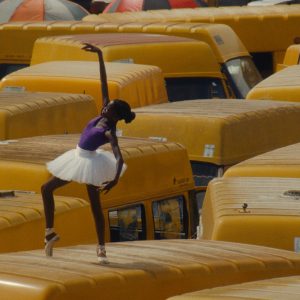
Brendan: The universal language of dance has the ability to resonate with diverse audiences. How do you believe this language will connect viewers from different backgrounds to “Then Comes The Body”‘s story?
Jacob: My main draw to working with dance in film is that I love the idea that I can tell a story without relying on dialogue and language. The universality of dance runs parallel to the universality of music. The universal nature of dance gives creative work that uses choreography a chance at resonating with people in a way that they don’t intend. I love the fact that you don’t have to be someone who cares about dance at all, to be moved by dance. That innate power that dance can have over us is thrilling. Music and dance are instinctively embedded in our humanity. When we see dance or hear music there’s a way it pulls your feelings in any direction, the same way that the wind pulls a sailboat. Something happens when we are instinctively pulled by some kind of universal language. We don’t always know why we’re drawn toward it and that’s how I feel about Leap of Dance Academy. I heard their story and felt gripped.
Then Comes The Body played as part of Melbourne International Film Festival which is running during August in various locations around Melbourne and online. For more information visit https://miff.com.au/program/film/then-comes-the-body


